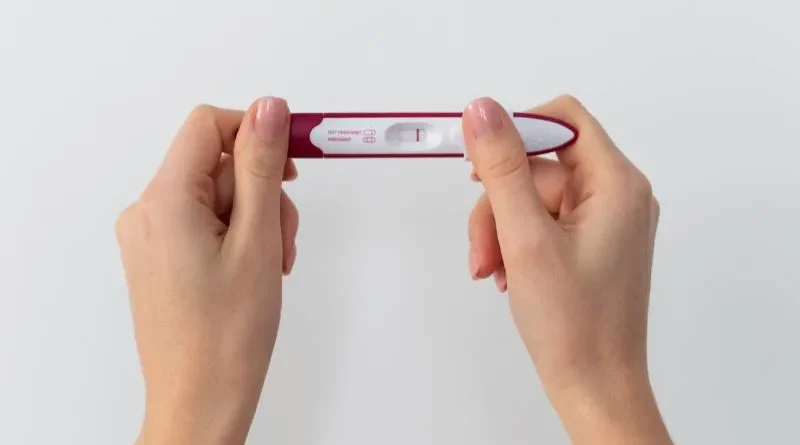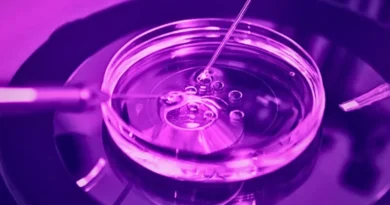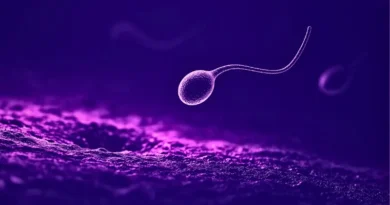Symptoms of Infertility: Common Signs in Men and Women
Did you know that nearly 1 in 6 couples worldwide struggle with infertility? Despite common misconceptions, infertility affects both men and women equally, often stemming from a mix of medical, genetic, lifestyle, and environmental factors. Understanding the symptoms and causes of infertility is crucial for seeking timely medical intervention and increasing the likelihood of conception.
Several factors contribute to infertility. In women, irregular menstrual cycles, ovulation disorders, and hormonal imbalances can hinder fertility. In men, low sperm count, erectile dysfunction, and poor sperm motility are common concerns. External factors such as smoking, excessive alcohol consumption, obesity, stress, and exposure to toxins can also negatively impact fertility in both genders.
By recognizing the early symptoms of infertility, individuals can take proactive steps to address underlying issues. This may include medical treatments, lifestyle changes, or assisted reproductive technologies (ART) such as in vitro fertilization (IVF) and intrauterine insemination (IUI). Early diagnosis and treatment can significantly improve the chances of conception and pave the way for successful pregnancy outcomes.
Source: *World Health Organization (WHO)
Common Signs of Infertility in Men and Women
Symptoms of Female Infertility
- Irregular Menstrual Cycles
- Variations in cycle length, missing periods, or excessively heavy or light bleeding may indicate underlying reproductive issues such as polycystic ovary syndrome (PCOS) or hormonal imbalances.
- Women with irregular cycles may not be ovulating regularly, reducing their chances of conception.
- Chronic stress, excessive exercise, or sudden weight loss can also cause menstrual irregularities.
- Some medications, such as chemotherapy or hormonal birth control, can also contribute to menstrual irregularities.
(Source: American College of Obstetricians and Gynecologists (ACOG))
- Painful Periods (Dysmenorrhea)
- Severe cramps, pelvic pain, or pain during intercourse can be signs of endometriosis, a leading cause of infertility in females.
- Endometriosis can cause scarring and blockages in the reproductive tract, preventing sperm from meeting the egg.
- Some women may experience chronic pelvic pain even outside their menstrual cycles, further indicating reproductive health concerns.
- Other conditions such as fibroids, pelvic inflammatory disease (PID), or adhesions from previous surgeries can also contribute to painful periods and infertility.
(Source: Endometriosis Foundation of America)
- Hormonal Imbalances
- Unexplained weight gain or loss, severe acne, excessive facial hair, and hair thinning can indicate reproductive hormone imbalances.
- Low progesterone levels can make it difficult for an embryo to implant, leading to early miscarriages.
- Thyroid disorders, whether hypothyroidism or hyperthyroidism, can significantly impact ovulation and fertility.
- High prolactin levels (hyperprolactinemia) can disrupt menstrual cycles and ovulation.
- Frequent Miscarriages
- Having two or more consecutive miscarriages could be a sign of underlying fertility problems such as uterine abnormalities, chromosomal disorders, or immune system dysfunction.
- Autoimmune disorders, such as lupus, can cause the body to attack a developing embryo, leading to pregnancy loss.
- Blood clotting disorders may also contribute to recurrent miscarriages.
Symptoms of Male Infertility
- Changes in Sexual Function
- Difficulty in maintaining an erection, reduced sexual desire, or ejaculation problems may indicate hormonal or structural issues affecting sperm production.
- Low testosterone levels, diabetes, or medications can affect libido and erectile function.
- Retrograde ejaculation, where semen enters the bladder instead of exiting through the penis, is another cause of male infertility.
- Pain during ejaculation or difficulty maintaining an erection may also be signs of prostate issues.
(Source: Urology Care Foundation)
- Pain or Swelling in the Testicles
- Conditions such as varicocele (enlarged veins in the scrotum) can contribute to male infertility by affecting sperm quality and production.
- Infections such as epididymitis or sexually transmitted diseases can cause swelling and block sperm flow.
- Testicular injury or past surgeries in the groin area can also impact sperm production.
Causes of Infertility in Males and Females
Infertility Causes in Females
- Ovulation Disorders
Ovulation disorders are among the leading causes of female infertility. Conditions such as polycystic ovary syndrome (PCOS), thyroid dysfunction, and premature ovarian failure can prevent the ovaries from releasing eggs regularly. PCOS, in particular, is a hormonal disorder that leads to irregular menstrual cycles, excessive androgen levels, and small cysts on the ovaries, making conception difficult. Additionally, hypothyroidism and hyperthyroidism can disrupt the balance of reproductive hormones, further affecting ovulation. - Fallopian Tube Blockage
The fallopian tubes play a crucial role in transporting eggs from the ovaries to the uterus. Blockages in these tubes, often caused by infections, sexually transmitted diseases (STDs), pelvic inflammatory disease (PID), or past surgeries, can prevent the sperm from reaching the egg. Without a clear passage, natural conception becomes nearly impossible, necessitating medical intervention such as surgical repair or assisted reproductive techniques like IVF. - Endometriosis
Endometriosis is a painful condition where the tissue similar to the lining of the uterus grows outside the uterus, leading to scarring, inflammation, and structural damage to the reproductive organs. This condition can cause severe menstrual pain, irregular bleeding, and infertility by obstructing the fallopian tubes or interfering with implantation. - Uterine Abnormalities
Structural abnormalities in the uterus, such as fibroids, polyps, or congenital malformations, can affect the ability of an embryo to implant and grow. Fibroids, which are noncancerous growths in the uterus, can distort the uterine cavity, making it difficult for a fertilized egg to attach properly. In some cases, surgical intervention may be required to correct these abnormalities and improve fertility. - Chronic Illnesses and Autoimmune Disorders
Conditions such as diabetes, lupus, and kidney disease can impact reproductive function by disrupting hormone levels and causing systemic inflammation. Autoimmune diseases may cause the body to mistakenly attack reproductive tissues, leading to complications with ovulation and implantation. - Lifestyle and Environmental Factors
Excessive alcohol consumption, smoking, prolonged exposure to stress, and obesity can all contribute to infertility in women. Smoking accelerates ovarian aging and reduces egg quality, while obesity can lead to insulin resistance and hormonal imbalances that impair ovulation.
(Source: **Mayo Clinic))
Infertility Causes in Males
- Low Sperm Count (Oligospermia)
Low sperm count is a major factor in male infertility, occurring when the semen contains fewer sperm than the optimal range for conception. This condition can be caused by hormonal imbalances, genetic conditions such as Klinefelter syndrome, testicular injury, or past infections affecting sperm production. - Poor Sperm Motility (Asthenozoospermia)
Even if sperm are produced in sufficient numbers, they must be able to swim effectively to reach the egg. Poor sperm motility can significantly reduce the chances of fertilization, often resulting from infections, lifestyle factors, or structural abnormalities in the reproductive tract. - Erectile Dysfunction and Ejaculatory Issues
Erectile dysfunction (ED) is the inability to achieve or maintain an erection suitable for intercourse. It can be linked to diabetes, cardiovascular diseases, obesity, or psychological factors such as stress and anxiety. Additionally, retrograde ejaculation, where semen flows backward into the bladder instead of exiting through the penis, can contribute to male infertility. - Exposure to Environmental Toxins
Pesticides, industrial chemicals, heavy metals, and radiation can impair sperm production and DNA integrity. Men working in industries with high chemical exposure should take precautions to minimize their risk. - Lifestyle and Health Factors
Unhealthy lifestyle habits such as excessive alcohol consumption, smoking, drug use, and obesity can negatively affect testosterone levels and sperm quality. High-stress levels and inadequate sleep can also contribute to hormonal imbalances that impair reproductive function.
(Source: **Cleveland Clinic))
Treatment Options for Infertility
- Medications: Hormonal treatments to induce ovulation or improve sperm count.
- Assisted Reproductive Technologies (ART): IVF, IUI, and ICSI to aid conception.
- Surgical Interventions: Procedures to remove fibroids, endometriosis, or repair varicoceles.
- Lifestyle Modifications: Quitting smoking, reducing stress, and maintaining a healthy weight.
- Alternative Therapies: Acupuncture, herbal remedies, and dietary changes may improve fertility.
- Dietary Adjustments: Foods rich in antioxidants, zinc, folate, and omega-3 fatty acids can enhance fertility.
(Source: Centers for Disease Control and Prevention (CDC))
Conclusion
Recognizing the symptoms of infertility is the first step toward finding a solution. By identifying the causes of infertility in males and females, individuals can seek medical intervention and explore treatment options. If you suspect fertility issues, consulting a specialist early can significantly improve your chances of conception.




